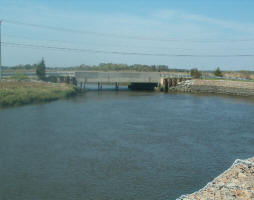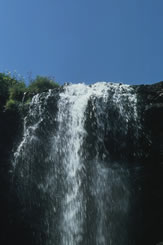 'Waste membrane' could help crops conserve water
'Waste membrane' could help crops conserve water
Scientists have developed a sponge-like membrane that enables plant roots to retain more water and regulate soil temperature — which could help agriculture in parched lands. The eco-friendly membrane is made from organic waste matter, such as seaweed, fish bones and chicken manure. The development was announced at the annual meeting of the American Association for the Advancement of Science on Sunday (18 February).
Lead scientist Torleiv Bilstad, of the Norway-based University of Stavanger, explained that, in desert soils, no matter how much the land is irrigated, water simply drains away deep into the soil and mostly evaporates. The membrane helps absorb more of the water around the roots, before it drains away. It comes in the form of a powder that is dissolved in water and then applied to seedlings. After absorption into the soil, the material forms a membrane around plant roots and helps them retain available water.
The technology is already being promoted in Nigeria, with plans to extend trials to Algeria and western Europe. Bilstad is considering starting a company to expand the use of the membrane globally and develop it for wider applications.
| Contact information | n/a |
|---|---|
| News type | Inbrief |
| File link |
http://www.scidev.net/News/index.cfm?fuseaction=readNews&itemid=3427&language=1 |
| Source of information | SciDev.Net |
| Keyword(s) | Waste membrane |
| Subject(s) | AGRICULTURE , RISKS AND CLIMATOLOGY , SANITATION -STRICT PURIFICATION PROCESSES , WATER DEMAND |
| Relation | http://www.emwis.net/topics/WaterScarcity |
| Geographical coverage | United States, Algeria, Nigeria |
| News date | 26/02/2007 |
| Working language(s) | ENGLISH |
 you are not logged in
you are not logged in





